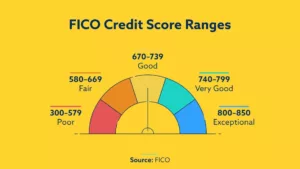
Question: I have private student loans that were taken out by Iowa Student Loan. I checked on https://www.nslds.ed.gov and confirmed they are not federal loans. My understanding is that the statute of limitations is 5 years for promissory notes in Iowa. The last payment was made through a collection agency in late 2009. They have not contacted me or anything since even before 2009. They had a collection agency contact me but now it’s the actual Iowa Student Loan calling again.
They are enticing me with zero interest for the rest of the loan, and a payment amount that I set. To me it seems like they are trying to get me to acknowledge the debt to reset the SOL.
Should I request the rest of the communication in writing and try and push it to the SOL time? I honestly thought my debt was all consolidated and have been paying on the federal loans. These just resurfaced within the last week. Is there anything I can do to stall them enough to hit that SOL time?
Answer: Federal student loan debt has topped $1 trillion and according to the Consumer Financial Protection Bureau as of August 2013, about half of the outstanding $1 trillion in federal student loan debt isn’t being repaid. It has been estimated 1 out of 8 borrowers are defaulting on their loans despite federal programs, such as student loan forgiveness, being available.
But, the difference in collection efforts on a federal student loan and private student loan are vast. Federal student loans are just about impossible to ignore. Private student loans are governed by your State; and once you are in default, the lender will come after you themselves or through a collection agency.
You are probably correct in thinking the lender may be trying to get you to agree or at least acknowledge the debt in order to reset the statute of limitations. And, if you are unsure of what to say and what not to say stay off the telephone.
But keep in mind, you run the risk of the lender filing a lawsuit against you before the statute of limitations has passed. Some lenders view lack of communication as a refusal to pay and will file a lawsuit in order to get your attention. Unlike federal student loans, where a lawsuit does not have to be filed to garnish wages, a private student loan is basically an unsecured personal loan.
There is really nothing you can do to “stall” them. They are probably well aware of the statute of limitations and well within their rights to take legal action to collect on a written contract. “Stalling” is a risk you’ll have to take if you are not prepared to set up payment arrangements.
Once the statute of limitations expires, the lender’s efforts to collect on the debt through the courts are limited by your raising the statute of limitations as a defense. But it does not mean they will simply go away. Unpaid debt can be pursued as long as it remains unpaid. The debt can be sold from one collection to another in perpetuity but you cannot legally be sued for it unless you do something to restart the statute of limitations.
And, after 7.5 years has passed from the date you first went delinquent and no further payments were made, you no longer have to worry about the debt being on your credit reports.
But I encourage you to consult with an attorney in your State to discuss the implications of an expired statute of limitations along with what actions you need to avoid in order to prevent the statute of limitations from being restarted. With a collection agency you can request communication via mail only; however, when dealing with the original creditor, you do not have that option. They can contact by mail and telephone. The best of luck to you.
Photo Credit: AP Photo
















